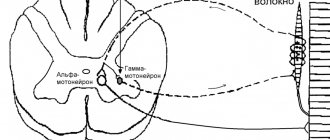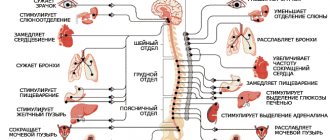Somatic diseases: types
Somatic diseases are diseases that develop against the background of stress and other negative factors. If previously only seven names were classified as such diseases, in our time doctors and psychologists have no doubt: any disease and symptom has a psychological basis, and psychosomatics makes its contribution. We found out what somatic diseases are. It remains to understand what types they are.
Acute somatic diseases
They differ in that they appear in adolescence and young adulthood. Women are more susceptible to chronic illnesses. There is a genetic and hereditary factor. The risk of pathology is higher in the presence of chemical dependencies.
Examples of chronic somatic ailments:
- gastrointestinal diseases;
- respiratory system diseases;
- liver and kidney diseases;
- blood diseases;
- diseases of the musculoskeletal system;
- skin diseases;
- cardiovascular pathologies.
The list of diseases ranges from mild illnesses such as a cold to severe somatic illnesses such as stomach ulcers.
Chronic somatic diseases
These are acute somatic pathologies that have become chronic. They have the same features. They are distinguished by the recurrent nature and persistence of some symptoms.
The difference between an infectious disease and a somatic disease
Somatic disorder has four characteristic features:
- There is no pathogenic agent. There is no virus, no bacteria, no other microorganism that causes infection.
- Symptoms affect several systems; the patient’s complaints do not fit into one picture.
- The client's immediate environment did not become infected with the same thing.
- There is no incubation period.
This is interesting! It happens that a person experiences real physical symptoms, but doctors do not find any pathologies or disorders. Such diseases also belong to somatic diseases.
Exacerbations
The acute phase of the disease can develop against the background of an existing pathology that occurs in a chronic form. Thus, most of the time the disease will have mild symptoms, but when exposed to certain factors (lack of treatment, hypothermia, stress, climate change, pregnancy, etc.), the disease can enter the acute phase, with accompanying symptoms.
In this case, we are talking about a process such as exacerbation of somatic pathology. Unlike the acute phase, an exacerbation with a favorable course is characterized not by complete recovery, but by a return to the chronic stage of the disease as safer for the patient’s life.
Treatment methods for exacerbations and acute phases differ little in the treatment regimen and drugs used. However, for higher efficiency, doctors recommend it to avoid exacerbations. In this case, the therapy is gentle and aimed at strengthening the body.
Causes of somatic diseases
Common reasons include:
- anxiety;
- conflicts;
- difficult life situations;
- prolonged stress;
- outbursts of anger;
- constantly growing discontent;
- nervousness;
- fears.
The longer negativity accumulates inside a person, the higher the chance of developing a somatic disease.
Factors that impair the functioning of internal organs
Negative psychological factors that worsen physical well-being include:
- anxiety;
- depression;
- fears;
- emotional overload;
- quarreling;
- aggression;
- hyper-responsibility;
- dissatisfaction with oneself, one’s life and environment;
- negative thinking.
It is important! Somatic diseases caused by nervousness have vague symptoms and an unclear picture of the disease. This feature makes diagnosis and treatment difficult.
Somatic diseases in childhood
Children are not immune from somatic diseases. The reason may be hidden in the mother’s difficult pregnancy (infections, toxicosis, stress), conflicts in the family, or rejection among peers. Due to the weakness of the body and psyche, children are more susceptible to such diseases than adults.
Signs of somatic diseases in children:
- sensitivity to infections;
- emotional lability;
- mood swings;
- tendency to allergies;
- sensitivity to weather changes;
- tic, stuttering and similar psychomotor disorders;
- weak immunity.
It is important! Sometimes there is general somatic weakness of the child. He is often sick and lags behind in psycho-emotional and physical development.
Masked depression and hypochondria
In addition to such common disorders, masked depression occurs. It is characterized by severe diseases of internal organs associated with the patient’s experiences. This disorder affects people who can withstand stressful situations and express external calm, but pathological processes occur in the body that has received a dose of stress.
Another type of somatic disorder is very common - obsessive hypochondria. Has expressed unreasonable concern about his own health. A person is suspicious, is in a state of stress, and is horrified if he hears about parasites. At the same time, it begins to feel itching and discomfort. This pathology leads to indiscriminate, unnecessary medication use.
Symptoms
Despite the vagueness of the clinical picture, several popular signs of somatic disorders can be identified.
Appetite disturbance
A person loses their appetite or develops an uncontrollable feeling of hunger. Sometimes this is accompanied by nausea or vomiting. The patient refuses to eat or, on the contrary, overeats. This condition is observed in diseases of the gastrointestinal tract, hormonal disorders, infections and nervous eating disorders.
Hypochondria
Obsessive preoccupation with health. A person mistakes normal reactions of the body for anomalies, for example, rumbling in the stomach, a slight headache from fatigue, rare belching, etc. The patient constantly looks for symptoms, diagnoses himself, and studies professional medical literature. Behind this lies the fear of death and lack of attention.
Body dysmorphic disorder
A person does not accept his appearance or worries about a certain shortcoming, often far-fetched. The cause of anxiety can be anything: wrinkles, height, weight, eye color, hair, shape of the nose or ears, breast size, etc. In advanced cases, a distorted perception of the body is observed. For example, a healthy or even thin girl can see herself in the mirror as a very plump person.
Conversion disorder
The reason why conversion disorder occurs is neurotic conflict. These are temporary disturbances that go away immediately after a difficult life situation is resolved. Examples of such diseases: deafness, paralysis, blindness.
Senesthopathy
Physical discomfort, unpleasant symptoms that are felt by a person as real. The specificity is that medical diagnostics do not find any basis for these sensations, that is, the person is healthy. No, he is not pretending, he really feels pain, fever, tachycardia or something else, but the reason lives solely in his psyche, and not in his body. This is observed in neuroses, depression, paranoia, manic-depressive psychosis.
Types of senestopathies:
- a feeling of tension, tension (for example, in muscles);
- thermal sensations (heat, cold, burning, chills);
- feeling of pulsation;
- sensation of fluid movement;
- pain;
- sensation of moving, twisting of organs.
Senestopathies have a distinctive feature - their description is always unclear or very emotional and colorful. Patients say that their body is in agony, that the stomach and liver seem to have changed places, etc. This becomes the main criterion for diagnosis.
Somatization disorder
A neurotic disease in which the client complains of certain symptoms. But there is no medical explanation for them. The client reacts violently and even aggressively to suggestions that discomfort is related to the psyche. Somatization disorder is often combined with anxiety and depressive disorders. The diagnosis is made in the presence of persistent and obsessive senestopathies for at least two years. Examples: irritable bowel syndrome, shortness of breath, suffocation, cardiospasm.
Sleep disturbance
A person suffers from insomnia, trouble falling asleep, and drowsiness. It happens that the patient is tormented by nightmares, or he often wakes up at night. This symptom is observed with hormonal disorders and cardiovascular diseases.
Pain syndrome
Pain occurs in 90% of cases. It differs in character, location, intensity, etc. Most often observed in anxious, suspicious, vulnerable people.
Masked depression
The patient is unaware of his condition and there are no classic symptoms of depression. The subject is active and cheerful, leads a normal lifestyle, and willingly communicates with people. However, the client is sure that he has some rare and difficult to diagnose somatic disease.
Hysterical conversion disorders
It manifests itself as feigned and demonstrative emotional reactions, convulsions, partial or complete loss of sensitivity, increased libido, and an altered state of consciousness. More common in women and people with certain traits:
- tendency to fantasize;
- suggestibility;
- superficiality in judgment;
- mood swings;
- desire to attract attention;
- theatrical behavior.
Asthenic syndrome
Neurosis in which a person feels apathy and powerlessness. An alternative name is chronic fatigue syndrome. What else is characteristic of this condition:
- instability of mood with a predominance of depressive tendencies;
- decreased performance;
- fast fatiguability;
- restlessness;
- absent-mindedness;
- heightened response to external stimuli;
- general weakness;
- moodiness;
- tearfulness.
Sexual function disorders
Decreased libido, pain during sex, erection problems, inability to achieve orgasm. Such changes can accompany dozens of diseases, from mental disorders to heart and spine diseases. Associated with low self-esteem, quarrels in relationships with a partner, and fears.
Mental disorders in somatic diseases
The connection between body and psyche also works in the opposite direction. If a person finds out about the disease, his health worsens. And the longer the treatment continues, the more nervous the person becomes.
What mental disorders occur in somatic diseases:
- fear of death;
- irritation;
- aggression;
- anxiety;
- suspiciousness;
- conflict;
- decreased cognitive skills;
- feeling overwhelmed;
- feeling of loneliness, uselessness;
- fatigue;
- depression;
- slowness;
- rave;
- hallucinations.
Mental disorders may even develop, for example, apathetic or depressive, borderline mental disorders with somatic illnesses. Mental changes depend on the character of the person and the characteristics of the disease. The longer a person is sick, the more irritable and angrier he becomes. And people with a fatal diagnosis suddenly lose interest in life. But this is wrong, because a positive attitude is the basis of successful treatment.
It is important! The doctor must monitor the internal psychological picture of the client’s illness, his reactions to the illness itself and treatment. This is especially important in the treatment of chronic and severe diseases.
Diagnostic methods
Several methods are used for diagnosis in modern medicine:
- collecting the patient's medical history, oral questioning;
- examination of the patient, palpation;
- use of laboratory diagnostic methods (examination of urine, blood, sputum, organ tissue, etc.);
- use of functional diagnostic methods (ultrasound, x-ray, etc.);
- operational examination methods.
To confirm the presence of somatic pathology, several different tests with deviations from the norm or at least three examinations, done at short intervals and always using the same method, are necessary.
Which doctors should I contact if a somatic disorder occurs?
If you have suspicious symptoms, we recommend that you consult a physician. He will conduct a general examination and, if necessary, refer you to a specialist doctor. He will conduct additional research, make an accurate diagnosis and tell you how to treat the pathology (if there is a medical basis). Or he will give a referral to a psychotherapist or neurologist (if no medical violations are found). Next, the psychologist will draw up a psychotherapy plan.
It is important! Psychotherapy is the main means of treating somatic diseases.
Treatment
Therapy of somatic ailments is the main component of the work of doctors. Medicine today uses an evidence-based method, that is, only those methods are used whose degree of effectiveness is high and the degree of danger is as low as possible. Treatment of somatic pathologies is most often carried out with medication. Drugs can act on the cause of the disease, eliminating it (for example, antivirals act on the virus that provoked a respiratory disease), or reduce the severity of symptoms (painkillers).
The second most common treatment method is surgery. The priority for doctors is the medicinal method as it is simpler and safer. But if the drugs are ineffective, or the expectation of an effect from their effects carries a risk to the patient’s life, surgical interventions are resorted to. For the treatment of somatic pathology, methods of physiotherapy, physical therapy and massage, herbal medicine, and diet therapy have also proven themselves to be effective.
Prevention of somatic diseases
Treatment depends on the characteristics of the client and the specifics of the disease. But preventive measures are the same for various somatic diseases:
- taking vitamins and dietary supplements (when choosing a product, we recommend consulting with your doctor);
- physiotherapy;
- therapeutic exercises and regular sports;
- proper nutrition;
- meditation and relaxation;
- individual and group psychotherapy sessions (if necessary);
- timely detection and treatment of pathologies;
- development of positive thinking;
- compliance with the work and rest regime.
Causes and risk factors
The factors and causes of the development of diseases have not yet been precisely established. It is noted that there may be a neurological basis (the system sends incorrect signals from the organs to the brain). Or we can talk about hereditary predisposition, genetic characteristics. Other studies say stress plays a role. But more often the reasons act in a complex manner.
Is it possible to prevent the development of a somatic disorder?
It is possible to prevent the development of somatic diseases. What needs to be done for this (recommendations for families, adults and children):
- lead a healthy lifestyle;
- Healthy food;
- walk;
- exercise;
- avoid overwork and overstrain;
- avoid stressful situations;
- undergo preventive medical examinations;
- to refuse from bad habits;
- change your attitude towards life and yourself.
It is important to radiate love and a positive attitude. It is harmful to deny yourself pleasures, suppress your talents, and live contrary to your essence. Remember that the basis of any somatic pathology is intrapersonal conflict.
Diagnosis of pathologies
In order for a doctor to diagnose a patient and establish that there is a somatic disease in his case, he needs to carry out a number of diagnostic measures. The main sign of the disease is the presence of certain symptoms. However, a symptom is not always a guarantee of the presence of pathology. Impaired well-being can be caused by a functional disorder of one or another system, and in this case the disease cannot always be diagnosed.
Therefore, it is important for the doctor to consider a combination of factors in order to establish that the patient has a somatic pathology: symptoms, their complex, duration, conditions of manifestation. So, for example, pain cannot be an obvious sign of pathology, but if it bothers a person for a long time and, in combination with it, there is, say, vomiting, the fact of the presence of a somatic disorder is more than obvious. At the same time, if the cause of pain is a blow, the person did not have any pathology before the traumatic factor.









